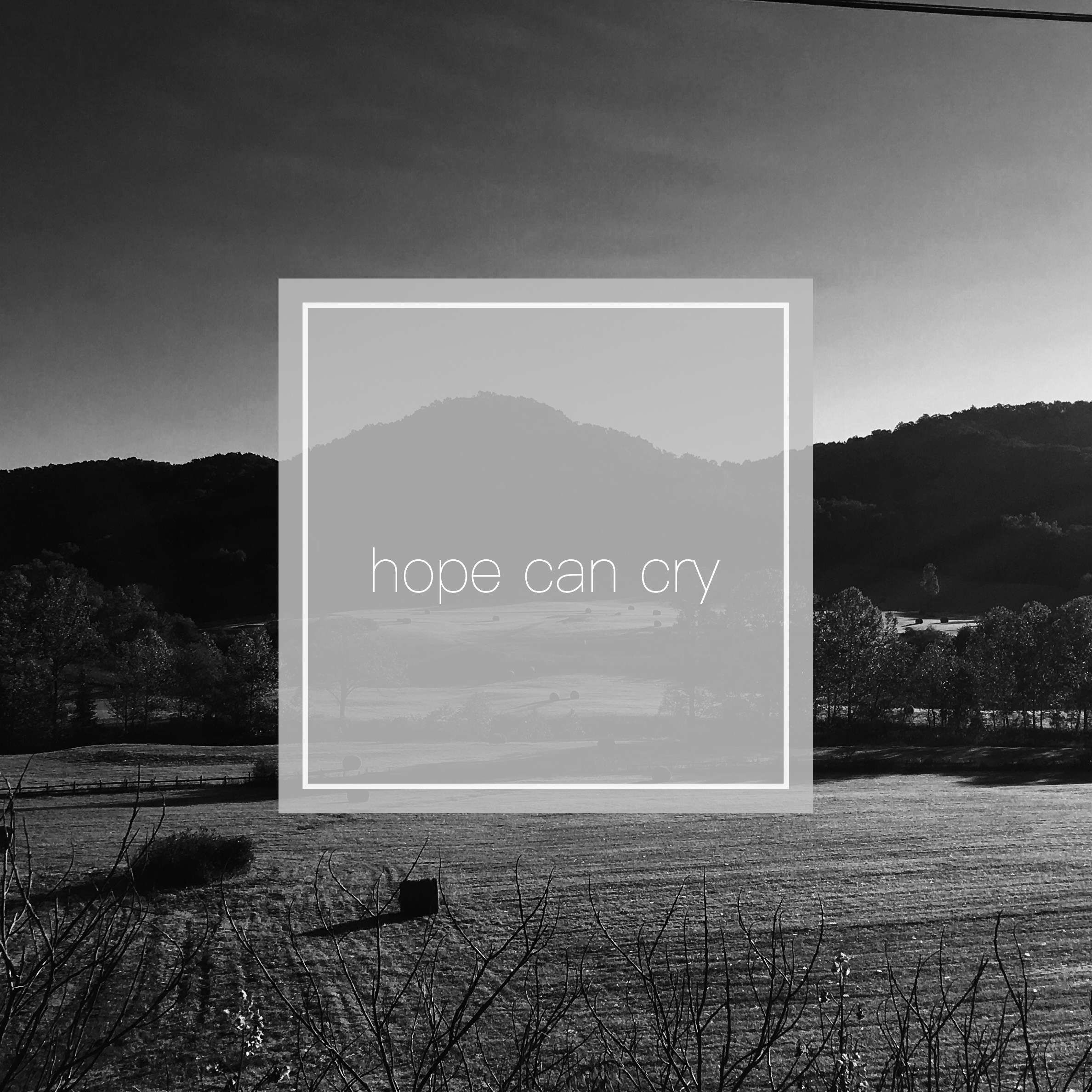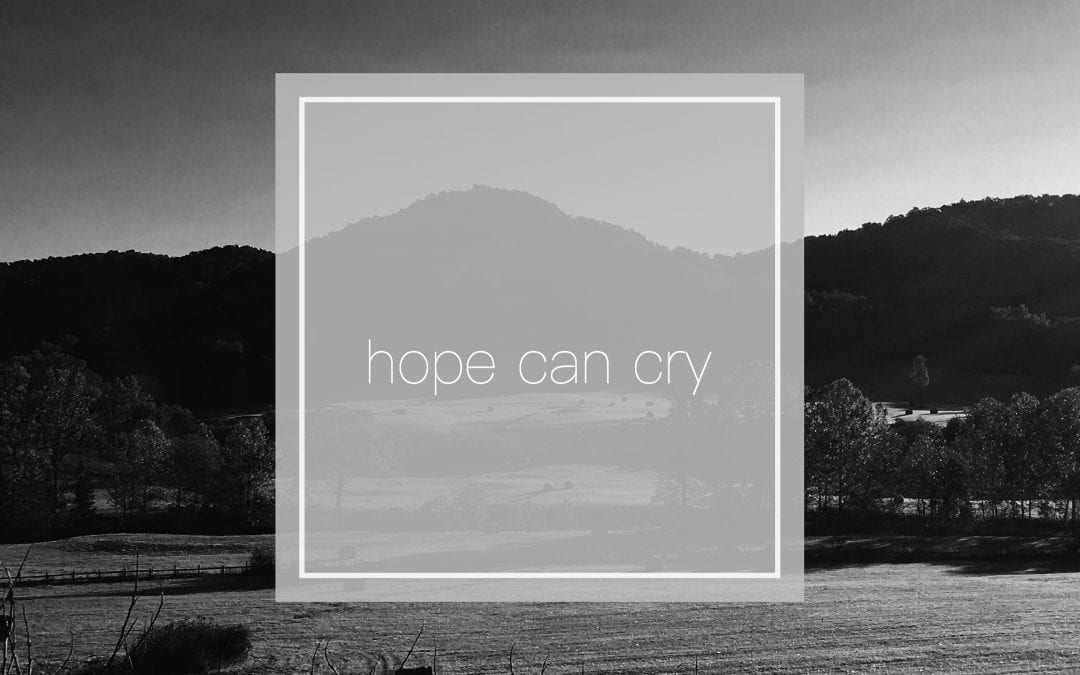
“We are in a perpetual state of trauma.” These were the words of an artist I follow on social media Monday morning as the news from Las Vegas began rolling in. I resonated with this statement. The last month has seen hurricanes, earthquakes, fires, floods, and now the worst mass shooting in US history. As a nation, we are reeling.
If I’m honest, cynicism and despair seem a lot easier than hope right now. I’ve had conversations with friends recently that are struggling with this – wrestling with a world that seems to be spinning out of control. Hope seems naive and detached from reality. Everything is going to be fine doesn’t comfort. God is in control doesn’t always make us feel at peace. If hope is just putting on a smile and spouting off religious platitudes, then yes, hope is silly.
What Is Our Hope?
Everyone has a hope, whether it’s framed religiously or not. You and I have something we look to ahead of us that gets us out of bed. Succeeding at work. Raising good kids. Getting that house or that car we’ve been working towards. Having the marriage we’ve dreamed of. Voting that person in office (or out of office!). Some thing – often good things – are the future hope that gives life to how we live in the present.
NT Wright says it this way: “You and I are unavoidably and irreducibly hope-based creatures. We are controlled not how we live now, but what we think will happen later. Christian hope has to do with the ultimate future, not the immediate.”
And our ultimate future, despite our current circumstances, is one of unshakable hope. Revelation 21 paints a picture of the end of death, pain, sorrow, and fear, where God lives among us in a restored heaven and earth. Jesus promises in Revelation 21:5 that “I am making everything new.”
Labor Pains
Sometimes, admittedly, this is hard to believe when you watch the news every day. But the pain points not to the loss of hope, but its coming being all the more near. Paul puts it this way in Romans 8: We know that the whole creation has been groaning as in the pains of childbirth right up to the present time. Not only so, but we ourselves, who have the firstfruits of the Spirit, groan inwardly as we wait eagerly for our adoption to sonship, the redemption of our bodies. For in this hope we were saved. But hope that is seen is no hope at all. Who hopes for what they already have? But if we hope for what we do not yet have, we wait for it patiently (Romans 8:22-25).”
I’ve been in the room for the birth of two children. And believe me, the closer to get to the arrival, the harder and more painful it gets! Hope is coming. The pain grows, but the hope is drawing nearer.
A brand new world is being born in the old one through Jesus, and like the birth of the child, the growing sufferings teach us that His coming is all the nearer.
Idealism And Pessimism
And if this is true, we have to look at the sufferings and trials we face in a very different way than the world around us. There’s typically two ways we interact with the sufferings of the world: we religiously explain it away like idealists, or we cynically accept and settle into it like pessimists.
As idealists, we seem to the world to be detached from reality – and therefore are hard to take seriously. We major in having the right things to say, but rarely know how to meet people in pain with compassion. In the words of C.S. Lewis, you are so heavenly-minded that you are no earthly good. This is the picture many outside the Church have of Christians in time of tragedy. It is happy, but it is not hope.
As cynical pessimists, we join a growingly hopeless chorus of people who see only destruction ahead. We might put a Christian spin on it, but it’s still no different from the gloom-and-doom prognosticators that constantly flood the airwaves. Most of the people I know who live in this mindset are people whose idealism (often in Christian form) has failed them. And if idealism has been all they’ve known of Christianity, losing it often means doubting or even leaving faith altogether.
Hopeful Realists
Instead of detached idealists and cynical pessimists, followers of Jesus should be hopeful realists. Unlike idealists, we can weep with the world around us in the midst of suffering. But unlike cynical pessimists, we can find meaning and purpose in the sufferings of our world because of the future that awaits us. In living with such a posture, we are positioned to live out Jesus’ prayer of “your kingdom come, your will be done, on earth as it is in heaven.”
Why? Being rooted in the struggles of the world around us, we can show compassion and acts of love that seek to bring our future hope in Christ into the present. We can act courageously because we know that no matter what we face, the hope that awaits us cannot be shaken. We can risk our lives to bring His kingdom in our world, and as we do, our hope will begin to stand out.
This is exactly what Peter called us to: “But in your hearts revere Christ as Lord. Always be prepared to give an answer to everyone who asks you to give the reason for the hope that you have. But do this with gentleness and respect (1 Peter 3:15).” Our lives should radiate so deeply with hope that the world around us – in our jobs, schools, homes, and everywhere in between – begin asking for an explanation. Secure in our future, our lives in the present should be noticeably more hopeful than the world around us, both in word and deed.
Hope Can Cry
So what does Christian hope look like in a time like this? It looks like tears. It looks like “mourning with those who mourn (Romans 12:15).” Hope can cry, because we know that the world was never meant to be this way. And yet through the tears, we know that a world where Jesus will wipe away every tear from our eyes is being born right in the middle of the old one. So it also looks like action – seeking that kingdom that brings tears to an end right here in the middle of the old one.
So in weeks like this, lay down your idealism. Lay down your pessimism. Take up hope, even if the tears come. It’s hard sometimes, but hope “does not put us to shame (Romans 5:5).” Ask the Holy Spirit to give you the “peace that passes understanding (Philippians 4:7).” Ultimately our future is powerful enough to transform our present.

